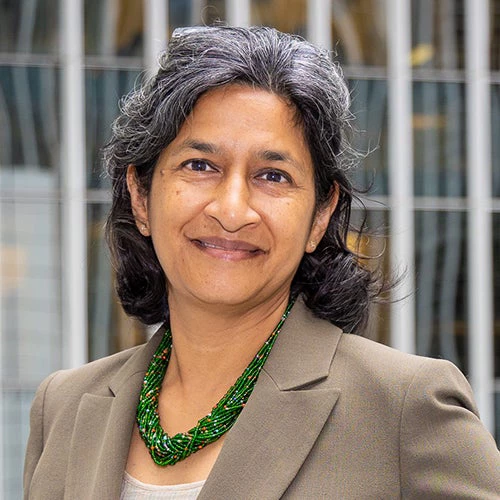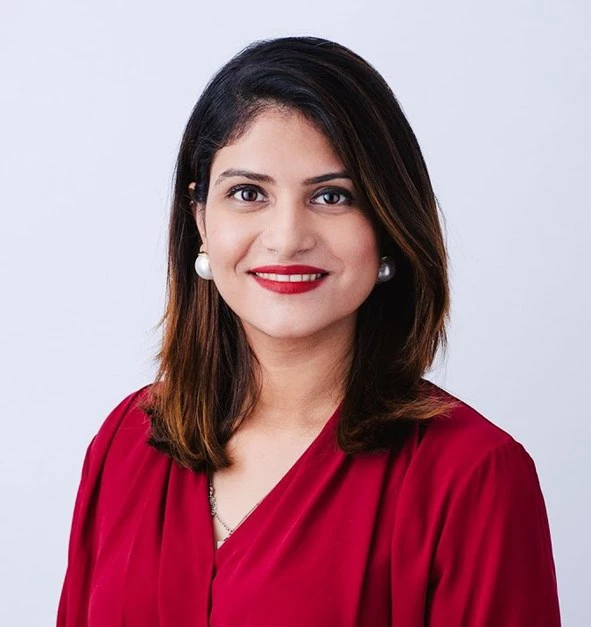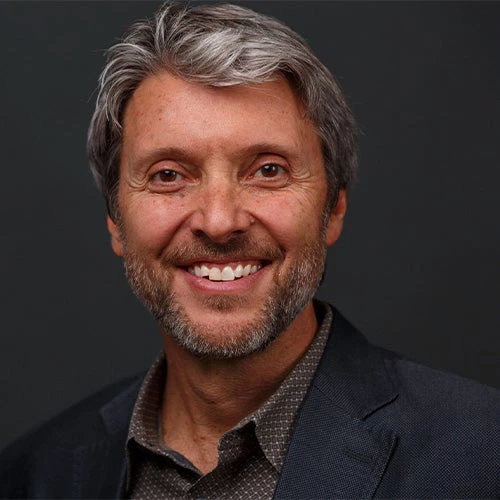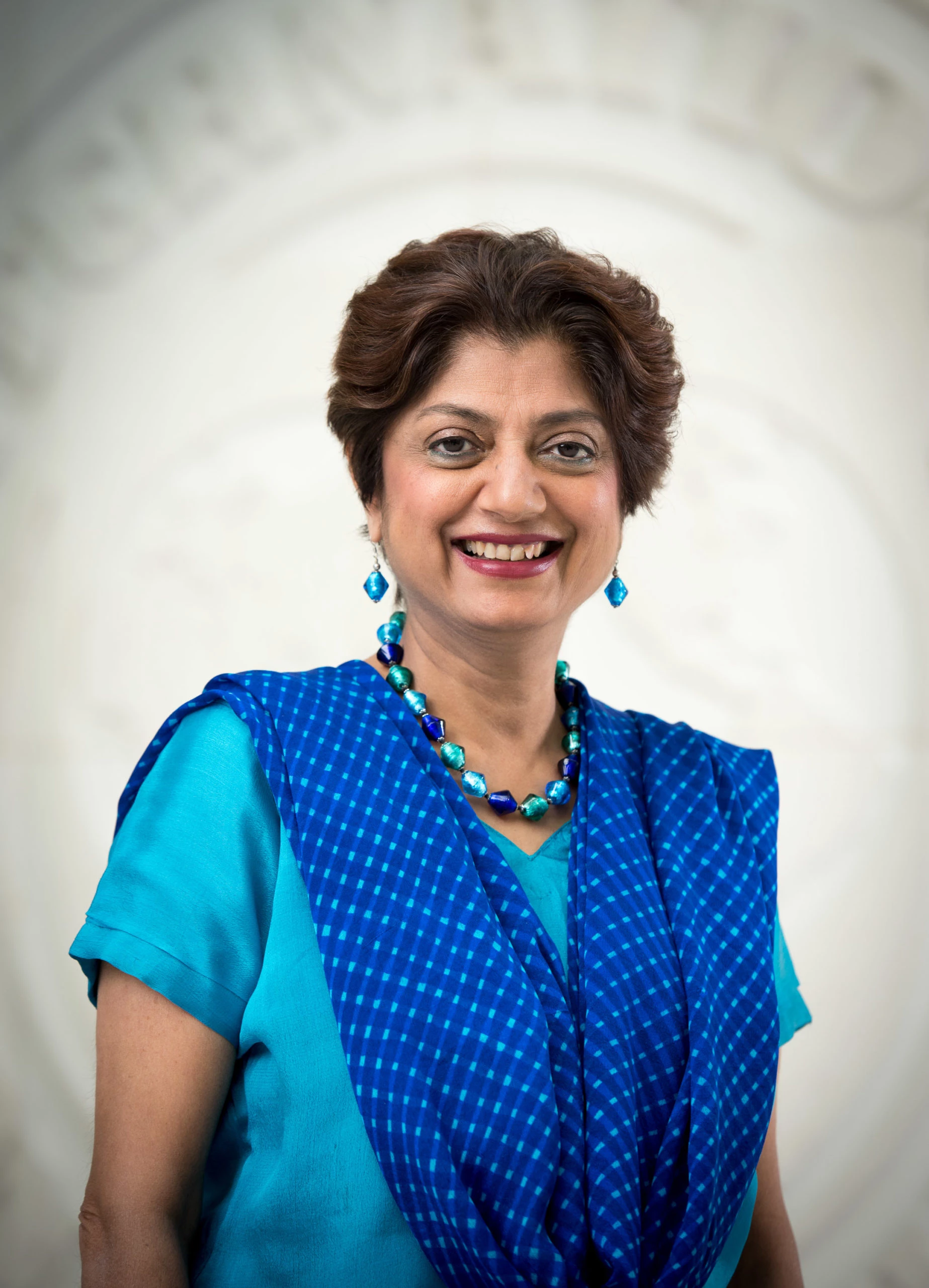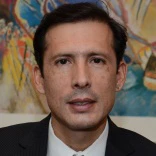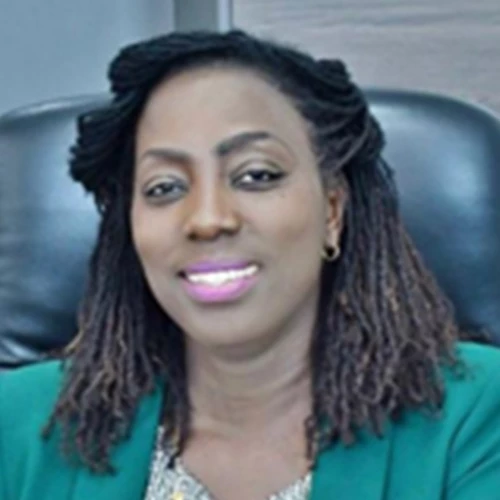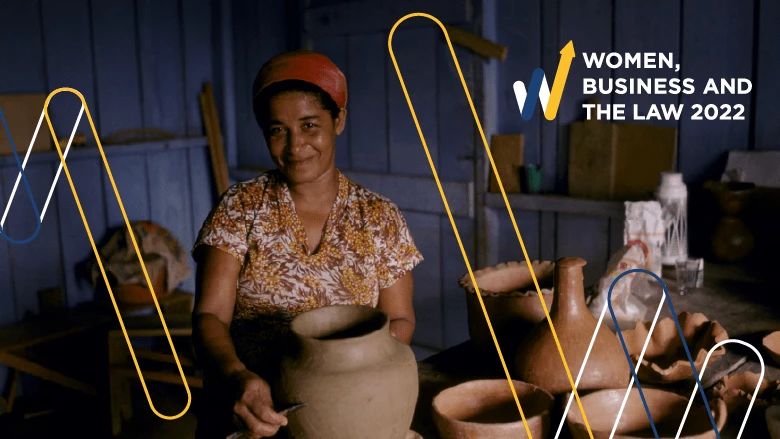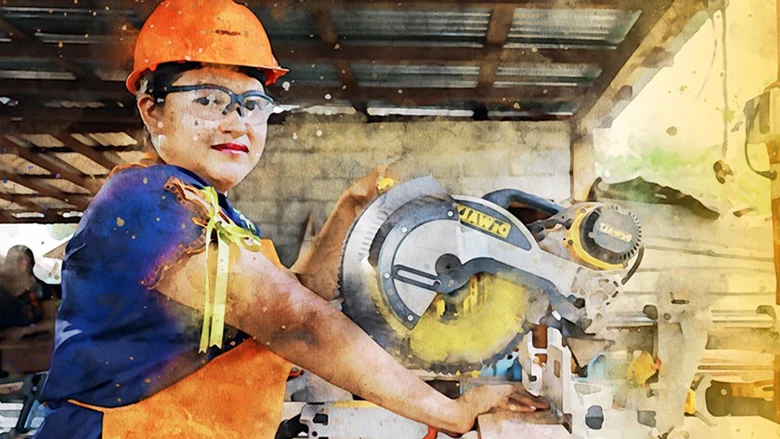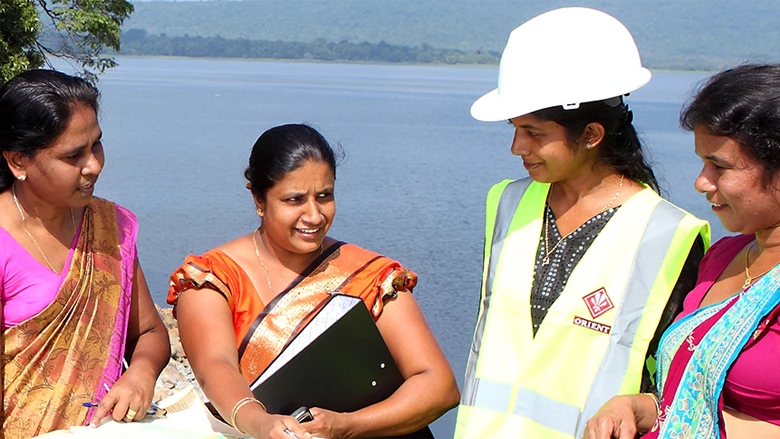[Antonio Zappulla]
Good morning, good afternoon, and good evening and welcome to our global audience. I'm Antonio Zappulla and I'm CEO of the Thomson Reuters Foundation, an international development institution dedicated to fostering free, fair, and informed societies using the power of the media and the law. I have the privilege and the honor of being your host for today's event, one that will address and discuss women's economic equality around the world through the unique perspective of the law. I mentioned earlier our global audience and that's because we are live in English, French and Spanish, and we are keen for this to be a very participatory event, so please feel free to join the conversation online using the #WomenBizLaw. You can also post comments and questions at live.worldbank.org where World Bank experts are standing by to respond in English as well as French and Spanish. I am very much looking forward to seeing your comments and to hear from our terrific lineup of speakers. And to kick us off, we have some timing reflections from Mamta Murthi, Vice-President for Human Development and Acting Manager and Director of Development Policy and Partnerships at the World Bank. Over to you, Mamta.
[Mamta Murthi]
Good morning, good afternoon, and good evening to all our distinguished panelists and everyone watching us across the world. Economies that limit women's contributions cannot reach their full potential. When laws restrict women's voice and agency fail to protect them from violence discriminate against them in the workplace and in retirement, women are less likely to fully participate in the workforce and contribute with their talent, knowledge, and skills. While as a global community, we have made significant progress in the past few decades, we are facing a critical moment in the fight for gender equality. The pace of reforms towards gender equality around the world has fallen to its lowest pace in over two decades while economic growth has slowed. This means that we need to urgently take action to accelerate progress on both. The Women, Business and Law Project tracks how laws impact women's decisions and opportunities at various stages in their lives. From the basic freedoms of movement and safety to the challenges of reconciling work and parenting and the ability to own assets and access credit. This year's study delivers mixed news. The rate of progress has been uneven across economies, regions, and areas of reform, and only 14 countries are reaching legal gender parity. Also, the rate of catch-up, although positive, has been slow, meaning, that at this space, it will take over 50 years to close the legal gender gap across the world. Equally concerning is that previously granted rights have been reversed. This year's report finds that in some economies, there have been legal changes that take away existing rights, including freedom of movement and the ability to get a job, and in some cases impose additional burdens such as the duty of obedience towards one's husband. We need to move forward, not backwards.
Now, not all is bad news. The report finds that despite multiple overlapping global crisis, most regions have advanced towards legal gender equality across all the areas measured. These reforms have happened most where they are needed with economies in Sub-Saharan Africa and East Asia and Pacific leading the way. Many of the reform efforts have addressed laws affecting women's pay and their careers after having children. This year's study also presents an impressive set of data from 1970 to 2022, and it shows that countries overall have adopted more than 2000 laws to enhance legal gender parity. As a result, the Women Business and Law score has improved by over 50% on average globally. What this shows is that progress is possible when the right forces are at play, and we will shortly hear the experiences from representatives of government, civil society, private sector, and international organizations. Let me conclude by saying that empowering women benefits them and the communities that they live in. It makes economies more inclusive, more energetic, and more resilient. As a World Bank, we embrace the compelling case for gender equality and we stand committed to support policy reforms to achieve this wherever they are occurring. Thank you very much, and back to you, Antonio.
[Speaker]
Antonio?
[Antonio Zappulla]
I think we want to say thank you to Mamta for reminding us of the strategic importance of empowering women with legal gender equality, and obviously, with the financial tools they need to continue to thrive. Because as Mamta rightly points out, investing in women means investing in children, investing in local communities, and advancing national and international economies, making them more participatory and more resilient. And now, it's my pleasure to introduce you to Tea Tumbric, who manages the Women, Business and Law Project at the World Bank. Tea will be sharing with us some of the highlights from the report. Tea, over to you.
[Tea Tumbric]
Thank you, Antonio. Gender equality is essential for ending extreme poverty and boosting shared prosperity in a sustainable manner. An equality grounded in the law is an important first step. Good morning, good afternoon, and good evening. Thank you for joining us as we launch Women, Business and the Law 2023 Report, the 9th study on the state of women's legal rights around the world. Before we dive into this report's findings, I would first like to thank more than 2000 experts who contributed their time and expertise to our report. The findings I will share today would not be possible without them. As we mark International Women's Day on March 8th, we need to reflect on the fact that billions of women around the world do not have the same rights and opportunities as men. A fact that should prompt us to take action. This inequality is not simply unjust, it is also limiting the potential of economies worldwide.
Let me start today with a story. On the next slide, I want to introduce you to a young woman in Kazakhstan, Almagul Kabilbekova. When she was 27, she decided to radically change her life and pursue her passion. She quit her job and went to study to be an auto mechanic. In 2019, Almagul got a job as a truck driver, but she was soon fired because women were prohibited from some jobs in the Kazakhstan. Over 200 jobs in Kazakhstan were classified as prohibited for women until October 2021. Almagul eventually found another job driving trucks, but in a different country where it was legal for her to work. On October 12th 2021, Kazakhstani President, Kassym-Jomart Tokayev, signed amendments repealing the ban. But 126 countries still prohibit women from working in the same industries as men. Fifteen countries have restrictions on women working in transport in particular. This is just one example of how restriction on women's employment can limit their ability to pursue their careers, achieve their full potential and contribute to their communities and the economy. As I will show you on the next slide, these type of restrictions are exactly what the Women, Business and the Law Report captures for 190 economies. Countries cannot move forward if half of their citizens are held back. If a country's laws are preventing women from fully participating in the economy, we cannot expect that economy to grow to its full potential. Yet all over the world, women must navigate discriminatory laws at different points in their lives and careers limiting their economic security and career potential. This is why at Women, Business and the Law, we set out to identify where exactly laws are preventing women from becoming employees and entrepreneurs. So, what does Women, Business and the Law measure? The goal is to track how the law affects women's access to economic opportunities. The eight indicators that you see on this slide follow how the law impacts a woman at different stages of her working life. Whether a 25-year-old starting her first job, a mother balancing work with caring for her children, or a woman preparing for retirement, the eight indicators show the ways in which laws affect women throughout their working lives. Women, Business and the Law presents a unique data set that measures progress towards gender equality in the world of work in 190 countries. On the next slide, I will discuss why this matters. Our research finds that equal treatment of women under the law is associated with larger numbers of women entering and remaining in the labor force, in rising to managerial positions. Legal equality also leads to higher wages for women and facilitates more women owning a business. And we also see more women represented in key institutions including courts and parliaments. Implementing reforms that incentivize women to enter the workforce as employees and entrepreneurs can serve the dual purpose of promoting gender equality and strengthening the economy's ability to withstand shocks. When all citizens, regardless of their gender, have an equal opportunity to contribute to the economy, it is more dynamic, resilient and strong. So, where do we stand today? Let's find out on the next slide. This year what we found is that worldwide on average, women have just three-fourths of the legal rights of men. The global average score is 77.1 out of 100. Only 14 countries, all advanced economies, score 100, which means that women are on equal legal standing with men across all of the eight areas measured. But this means that 2.4 billion women do not have equal economic opportunity and 176 economies maintain legal barriers that prevent their full economic participation. As I will show on the next slide, there has been some progress, but this progress is not nearly enough. We found that 18 economies introduced a total of 34 reforms towards gender equality. This is the lowest number of reforms in 20 years. At this space, it will take another 50 years to reach legal gender parity everywhere. A young woman starting to work today would not see equal rights in her working life.
The good news, however, is that all regions enacted reforms. Most of the reforms happen in the Sub-Saharan Africa, with seven economies enacting 18 positive legal changes. Economies are Benin, the Republic of Congo, Côte d'Ivoire, Gabon, Malawi, Senegal, and Uganda. Other countries that reformed this year, Bahrain, China, Costa Rica, Indonesia, Iraq, Jamaica, Kazakhstan, Malta, Mongolia, the Netherlands, and Pakistan. Most reforms focused on increasing paid lead for parents and for fathers, removing restriction on women's work and mandating equal pay. For example, China, Malta and the Netherlands mandated paid parental leave. Senegal amended its law to prohibit the dismissal of pregnant women. Costa Rica, Côte d'Ivoire, Gabon, Kazakhstan, and Senegal removed restriction on women's work. But as I will show the next slide, advancing the gender equality agenda requires significant efforts as there's still a lot of work left to be done. There's a need to accelerate the pace of reforms. There's still a great variation of laws both across and within region. But thanks to reforms in the Sub-Saharan African continent, this year the pattern among regions has changed for the first time since 2004. This year, Sub-Saharan Africa surpassed the average score of East Asia and the Pacific for the first time. Today, equality of economic opportunity for women is highest in OECD high-income economies where the average score on the Women, Business and the Law index is 95.3 and it is the lowest in the Middle East and North Africa region where the average score is 53.2. The gap between the lowest scoring and highest scoring economies in Sub-Saharan Africa in the Middle East and North Africa is close to 65 points. This means that economies in these regions can learn from their neighbors or inspire others to reform. And speaking of learning from others, on the next slide, I would like to talk about what we can take away from looking at 50 years of reform. This year, the report includes an entire chapter which looks at an analysis of 53 years of data on legal reforms around the world. There are five important takeaways. First, since 1970, the global average women business in the law score has improved by about two-thirds, rising from 45.8 to 77.1 due to more than 2000 reforms. Two, despite this progress is uneven and only 14 economies out of 190 have laws giving women equal rights as men, a lot more is left to be done. And three, it is not only who reformed that is uneven, but also what they reformed. Most reforms were related to prohibiting domestic violence, gender discrimination in employment and sexual harassment. Other areas have been slow to reform, like inheritance rights, but the good news is that we are seeing countries catching up as the next slide will show.
Our fourth takeaway is that economies with historically larger legal gender gaps have been catching up, especially since 2000. And finally, the catch-up effect has been happening across all areas covered by Women, Business and the Law, but the pace of progress has been uneven. The catch-up effect has been strongest in the laws related to the workplace, followed by those affecting parenthood, entrepreneurship and pay. But what drives this legal reform? Let me tell you on the next slide. In order to accelerate the pace of reform, it is important to understand what drives it. To explore this question, our team worked with civil society organizations, the public and private sectors and international organizations to conduct case studies of seven countries that enacted some of the biggest legal reforms to improve gender equality. Let's take the example of São Tomé and Príncipe, an island state off the Western Coast of Central Africa. In 2007, a member of parliament, Dr. Maria das Neves, set up a gallery of images depicting the harm experience by survivors of domestic violence in the quarters of the National Assembly. This campaign elevated a specialized domestic violence law to the top of the legislative agenda. UNDP, Civil Society organizations and women's groups worked with female lawyers to draft the first law on domestic and family violence. The law was passed in 2008. This example suggests key drivers of reform we observed in other cases as well. International legal mandates that set the standards, technical assistance from international development partners, activism of local women's groups, multi-stakeholder coalitions that include the public and private sectors, and the use of research and data.
On the next slide, I will share how you can access our data and research in your work. Women cannot afford to wait another 50 years to reach equality. Countries cannot afford to lose momentum now. Overcoming legal gender barriers benefits all of society, not just the women. I would like to encourage you to scan this QR code and visit our website to access our new report. Use the data and evidence in your own work to help accelerate gender equality. To conclude with the last slide, I would like to thank our partners and thank you for joining us today. I look forward to learning from the policymakers and experts invited today. Back to you, Antonio.
[Antonio Zappulla]
Thank you, Tea. And for those of you who continue to join us at this hour, you're very welcome. We are discussing the state of women's economic equality and legal gender parity around the world through the findings of the recently launched World Bank Report, Women, Business and the Law. You can also join the conversation online using the #WomenBizLaw. And we just heard from Tea, there has been great momentum for reform in the Africa region. I'm actually in Nairobi, Kenya, right now to meet some of our strategic partners, and the issue of women's economic empowerment is one that comes at every single one of them. And so, we have the great privilege of being joined by two ministers here in the continent, Her Excellency Fatou Diane Gueye, Senegal's Minister of Women Family and Child Protection, and His Excellency Sansan Kambile, the keeper of the Seals and the Minister of Justice and Human Rights of Côte d'Ivoire. They will give us some important insights into the legal reforms that their country has recently enacted to increase women's economic participation and opportunity. The co-author of Women, Business and the Law Report in Private Sector Development Specialist at the World Bank, Isabel Santagostino Recavarren, will facilitate the conversation. Please note that this discussion will be in French, so if you want to continue listening in English, please select the corresponding audio channels to access simultaneous translation. Isabel, over to you.
[Isabel Santagostino Recavarren]
Thank you, Antonio. We have the honor to welcome two distinguished guests for the reforms in gender equality. [inaudible] Fatou Diane Gueye. [Inaudible.] Last year, Senegal and Côte d'Ivoire have undertaken important forms for equality of Shandra. We will have a conversation with our guests to understand what are the factors that have motivated that reform, what were the efforts undertaken, and which are the persistent obstacles for inclusion of women, and what would be at the top of their agenda initiative. Let's start with Fatou Diane, Minister of Senegal for Women and Children. Madam Minister, Senegal recognizes in the report about the reforms that Senegal [inaudible] Labor Code that reduced some restrictions for access women to work. What motivated these reforms in Senegal? That's a question I would like to pose to you.
[Fatou Diane Gueye]
Thank you very much for the invitation that was extended to me to participate in this instance. Well, what motivated these reforms in Senegal is that social protection is an essential factor for the economic and social development of Senegal. Social protection is for us a priority. We'll talk about human capital, social protection, and sustainable development. We also have national strategy for social protection until 2035. We want to create a national system inclusive for social protection. I mean, this protection will be accessible for all. This is now part of national culture and this is insured by the state, giving women a good place in the society. The condition of women, for instance, maternity, makes women more vulnerable in terms of their job and often, they're exposed to violations of their fundamental rights, especially at the workplace. And so, in view of the situation, the government has undertaken to improve the condition of women in our country, especially working women in Senegal with renewed regulations that will justify to the necessity to eliminate restrictions to work by women because we had very important restrictions to their access to jobs and we need now to eliminate those restrictions. It was also necessary to be consistent with the Convention of 1983 about maternity and also, the UN committee on the elimination discrimination. We had to put our legislation at par with all these initiatives. Also, we had to have a way of resolving differences among parties. So, we have regulations, we have laws now that are in place since November 2021. We also wanted to allow women to choose what to do, what work to give them equal opportunity in terms of salaries and access to employment, so they could develop themselves. So, these are motivations that may undertake these reforms for women.
[Isabel Santagostino Recavarren]
Thank you for these valuable insights. Now, we can understand what's going on in Senegal for this. Our report shows that empowered women is good for the economy. Now, in Senegal, what's driving women in terms of participating in the economy? Could you give us some of the challenges that are of difficulty women and their jobs, and what are you doing to resolve it?
[Fatou Diane Gueye]
Thank you for this question. In terms of challenges, we're now measuring the level of economic participation in women and what are the difficulties that they face to their jobs. So, what are the different obstacle constraints that block the effect of participation of women to our economy? And we have a few of these difficulties now identified. Reconciling, for instance, professional life and family life. It's one, it's the first difficulty or challenge. There are other difficulties, which is unpaid work by women that is not included in the national accounting of the country. Also, the difficulty in the rural area, which is women do not have access to their rights. The worker women is not valued. This is traditional. This is another difficulty that was identified. And also, access to financing, access to international markets is absent. So, to sum up, those are some of the difficulties that we have identified. And they, of course, are obstacles to the full participation of women in the economic development of the country. And as a minister in charge of women empowerment, I have launched last month, in February, I launched an initiative to make a list of all women's organizations, entrepreneurs, women's organization in Senegal and put them together. So, we have the first results of this initiative in and now, yeah, there are 27 organizations in different sectors. These results will be presented. The large, the other big initiative, they will have a meeting of entrepreneurship for women. President Macky Sall is the head of this initiative and that will take on March 7th 2023 with the presence of the President, that is next Tuesday. And during those meetings, we'll address a complete diagnostic of the constraints against empowerment of women, What are the difficulties that impede women to really have full access to the economic development of the country. So, these meetings will be open, allowing to exchange among the different categories. We'll have women's organizations, private society, universities, ministries and other agencies, representatives of the financial sector and especially, universities and research institutes. So, for us that is a way to attack the real problems, that real difficulties to then look for solutions to them. So, we hope that this initiative will help creating more favorable conditions for women, conditions that will allow them to benefit from what has been already accomplished and also, have initiatives to company women in their development and their participation in the economy. And so, we also want to find something to fight against the sharks in this post-COVID era. They had very negative impacts in terms of the quality of life of women and their development, in the economic development particularly. So, those are the challenges that we are facing and those are the initiatives that will try to increase participation on women in the economic life of the country.
[Isabel Santagostino Recavarren]
Thank you, Madam Minister. That was quite interesting. And we know that the policies that you have enumerated will be excellent for the environment of women. And now, let's go to our colleague, Mr. Kambile, the Minister of Justice of Côte d'Ivoire. Mr. Minister, in the past year, Côte d'Ivoire has adopted reforms for the equality between men and women and a law protecting women against domestic violence, work for women, and the discrimination in between men and women. My question is, what are the factors that brought you to adopting these reforms?
[Jean Sansan Kambile]
[Inaudible.] [Foreign language.]
[Isabel Santagostino Recavarren]
We have issues with your connection. Unfortunately, we can't hear you, but thank you very much for your comments and for your contribution to this discussion. I would like to…
[Jean Sansan Kambile]
Isabel, Isabel?
[Isabel Santagostino Recavarren]
Are you connected? Can you hear me?
[Jean Sansan Kambile]
I can hear you. We're here.
[Isabel Santagostino Recavarren]
Very good. We couldn't hear you, but we will now listen to your answer. So, I will ask you the question again. What are the factors that brought you to these reforms in Côte d'Ivoire?
[Jean Sansan Kambile]
Thank you. Thank you for this opportunity. The constitution, the Article IV of Constitution- [Inaudible.] … Article 36 talks to equality between men and women and promoting parity between men and women on the labor market and promoting women in companies. We are party to international agreements, forbidding discrimination and the law is aligned now on the constitution. We also have a reform on the law of marriage equality in between men and women for managing their assets and recognition of natural children. [Inaudible.] … In law on Penal Code on rape, prohibition of moral and physical violence, forced unions. Fundamentally, we have adopted a law that forbids gender-based violence on the 21st of December. The law deals with protection against rape, sexual violence. Women are protected since the law specifies actions against all these. So, this is the reform implicated in the constitutional reform.
[Isabel Santagostino Recavarren]
Thank you, Minister. We do understand how Côte d'Ivoire has adopted all the reforms in the past year. And second question, what are the efforts that Côte d'Ivoire will deploy to implement the laws you've described?
[Jean Sansan Kambile]
The main issue in African countries is not knowing the laws to enable the implementation of the law. We have launched an information campaign on the laws, radio, TV, training actors in the field, NGOs, the police, and all in the field. The law will be well-communicated and we will assess in a few months how the law was applied and implemented. We have strengthened the capacities of committees and commissions on the topic, so the law will be communicated through our civil servants through the social media to make the law known for women. Thank you.
[Isabel Santagostino Recavarren]
Thank you, Minister Kambile, for your comments and thank you very much for taking part in this discussion. It is quite promising and we hope to know more in the next few years. And now, I would like to thank Minister Diane and Minister Kambile for having shared with us and for taking part in the launch of our report today. So, our report underlined the necessity of reforms to have equality between genders and enable the participation in the economy of women. I hope that this has shown some of the issues that should be taken care of in the laws. Thank you very much for following our discussion. And you have the floor, Antonio. Back to you.
[Antonio Zappulla]
Thank you, Ministers for your participations and thank you for sharing your experiences. We hope they will inspire other countries to take tangible commitments to advance women's economic empowerment and legal gender parity. And of course, thank you, Isabel. And so, before we move to today's panel discussion, we have the pleasure to hear from Hana Brixi, Global Director for Gender at the World Bank. Hana.
[Hana Brixi]
Thank you for this opportunity. Now, let's use the launch of the 2023 Women, Business and the Law to rally for a change. Now, Women, Business and the Law is a key resource for guiding the legal reforms that improve the lives of women and for inspiring governments to create an enabling environment for women's economic empowerment. In 2012, the Women, Business and the Law inspired the government of Côte d'Ivoire to remove gender unequal legal provisions from their Family Code. And since then, Women, Business and the Law has inspired legal reforms in many countries, often through bank operations. In Madagascar's ambitious agenda to improve human capital, Women, Business and the Law data informed reforms to strengthen legal frameworks for the protection of women and girls. In Azerbaijan, Women, Business, and the Law data helped lift restrictions on women's access to jobs. In Sierra Leone, Women, Business and the Law helped prohibit gender-based discrimination in financial services. And this year's Women, Business and the Law contains some good news. The global average Women, Business and the Law score is 77.0 out of 100, which is half a point higher than a year before. In the past year, 18 economies in all regions introduced a total of 34 legal reforms toward gender equality, and countries in Sub-Saharan Africa account for half of all reforms. But women still have just three-quarters of the economic rights of men, and, as the Women, Business and the Law report shows, the laws are often not implemented. Implementation capacity may be weak or social norms may stand in the way. Hence, the legal reform must go hand-in-hand with changes in informal institutions such as social norms. And shifting norms and addressing legal barriers can be mutually reinforcing. So, as the World Bank Group is now updating its gender strategy, we are exploring how countries innovate, frame and mobilize change in formal institutions, such as laws, and in informal institutions, such as norms. And how they help shift the mindsets to advance gender equality and empowerment and to address marginalization based on gender norms. How to align the legal policy and norm change to empower, for example, female farmers in Ethiopia, so that they access farm inputs to the same extent as male farmers and thus, can raise their farm output per land by 30% just by overcoming gender barriers. Now, the World Bank Group gender strategy update will make the case for gender equality and empowerment will make an economic case, business case and global development case. So, together, let's build on the findings of the Women, Business and the Law of 2023 and let's rally to advance gender equality and empowerment for all. Thank you.
[Antonio Zappulla]
Thank you, Hana. And so far, we heard from practitioners and donors such as the World Bank about their efforts to remove discriminatory laws that hinder women's economic inclusion and direct efforts to support countries in closing the legal gender divide. Now, I'm delighted to welcome a fantastic panel of experts to engage in a more in-depth conversation about women's economic inclusion. Our panelists represent the private sector, civil society, and one more international organization, the International Monetary Fund. In conversation with me, I have Dr. Sara Saeed Khurram, the Chief Executive Officer of Sehat Kahani, a E-Healthcare Company in Pakistan, Dr. Gary Barker, who's President and CEO of Equimundo, an organization that engages men and boys as allies in the efforts to promote gender equality, and Dr. Ratna Sahay, Special Advisor to the Managing Director at the International Monetary Fund. Welcome all. And I'll start with Dr. Saeed Khurram. Let me start with you because you are the co-founder of Sehat Kahani. This is an all-female health provider network. You are creating a network effectively that is cost-effective, it's good quality digital healthcare solutions for women in Pakistan. I am curious to understand what brought you to this project and what obstacles, if any, you encountered as a woman entrepreneur in Pakistan, even though we are talking about economic empowerment.
[Dr. Sara Saeed Khurram]
Thank you. Thank you for having me here. I come from Pakistan and Pakistan has a very unique problem when it comes to its medical healthcare ecosystem. We have a unique problem of doctor brides in the country. Pakistan has around 245,000 doctors and 80% or more of our workforce is made up of women. But unfortunately, only 40% practice. The rest become doctor brides, which means they graduate, but never practice. Now why does that happen? And Pakistan is a culturally conservative country, so when women become doctors, it raises their noble stature. But when they become doctors and they start working, there are a lot of impediments in their actually working. Many hospitals in Pakistan do not have daycares. Many families in Pakistan don't allow women doctors to go overnight and stay in hospitals and do duties, which are very mandatory in the early years of college or in the hospital, and some of them do not give much pay to these young women doctors. And that is why a lot of women doctors, because of cultural constraints and social constraints, give up their practice and sit at home. Now, what it does in a country like Pakistan, where they make majority of the workforce is that then half of our population, which is 110 million people, never see a doctor in their lifetime. And this is more prominent for women and children, which make half of our population. Particularly in rural areas, women and children suffer from quality care because there are no female doctors available, and that is taken up by nurses or quacks or midwives. When I was becoming a doctor, I also became a doctor bride and I understood the dilemma that a woman doctor goes through. And then I also got to work in different tertiary care hospitals to understand that women in our communities undergo a lot of trauma of not accessing doctors due to mobility issues, and again, social issues by which a female cannot go to a hospital, mostly without a chaperone. Even if she goes to a hospital, she cannot pay because she doesn't have any money on her hands, she does not have an account to pay. So, women are very hampered from accessing healthcare or giving healthcare at all levels. Just to supersede that through technology, I created Sehat Kahani, which allows female doctors from their homes to connect to patients, particularly women and children in low-income areas using telemedicine technology. And one of our very important ambitions in our company is to democratize healthcare access for all, particularly for women. In our clinics, when there's a female who enters the clinic, she's greeted by a woman nurse, who then connects a patient to an online doctor. They either have a mobile application or a web browser. They can take history. They can do examination using E-tools. There's a digital prescription. And the entire journey for that woman patient is then governed by two women, which creates a very safe spaced circle of care for everyone involved in the journey. In the middle, we also notice that the nurses that we work with are not able to take any loans to build their clinics because there is no loan without collateral in Pakistan for anyone, which I think is a major problem. And the way we sorted this out for nurses that work with us is to provide them a loan without collateral and with a certain degree of recovery, so they can create their clinics with us and empower themselves to become an assistant between a doctor and the patient.
[Antonio Zappulla]
Thank you, Dr. Saeed Khurram. I'm moving now to Dr. Barker and I would like to talk about Equimundo because the latest Women, Business and the Law report mentions specifically the importance of civil society in challenging the status quo and mobilizing action for legislative reform in terms of gender equality. So, Dr. Barker, how important is it to engage men and boys in this advocacy process, so that they can become champions indeed of gender equality, gender justice, and even a concept of positive masculinity?
[Dr. Gary Barker]
Thanks, Antonio, for the question and thanks to the team at the World Bank for the report itself and for making gender equality a central goal of the World Bank. Our work at Equimundo starts with the idea that men need gender equality and gender equality needs men, that sometimes the word engagement can feel a bit light. We believe that men need to see the moral and ethical imperative of gender equality. And I think the World Bank and this, the Women, Business and the Law report shows while we've made progress, just how much we're still stuck. So, what does our work do? We try to work at three levels where we see male ally-ship for gender equality and for promoting healthy masculinities can really make a difference. One of these, and I think it relates to what Sara just mentioned in terms of who does what in the home and our expectations about that, one of our areas of work is care equity. We know that globally women do on average three to 10 times more of the daily household unpaid care work. No country in the world has achieved equality on that. No country in the world that we've seen even has a law or a policy in place that says we believe that men and boys should do that 50% of unpaid care work. We have created a global campaign called MenCare that's got NGO partners, civil society partners in more than 60 countries working to say, "What changes do we need in terms of policies?" Those include parental leave policies among many others, of course. And then looking at the institutional level of how do we build in a belief and an imperative that men should do our share of the care work. We work with health sectors in a few countries to engage men in the prenatal phase and also to scale up gender transformative parent training. We've been doing that in Rwanda and also partnering with the World Bank in Cambodia to do that as well with the early childhood sector.
Another area that we do is around gender socialization. We know that these norms around gender inequality start often in childhood with the patterns that boys and girls see in the home. Our global boyhood initiative works with teachers and school systems and afterschool programming to build in an analysis of and to do training and rollout evidence-based programming to engage men from early on, boys early on, in believing that gender equality is necessary.
And a third area, and I believe this touches on something you brought up before Antonio, is the issue of women's economic empowerment. If there is a standout of our learning from these years of promoting gender equality, it's just how much the full economic equality and empowerment of women is necessary. And yet, we too often don't think about what men's stake is, either men's resistance or men's support for a female partner's full participation in the paid workplace. We've done partnerships with a number of kinds of women's economic empowerment programming. We have a model called Journeys of Transformation that engages male partners in the process, looking at to make sure that we both reduce household violence, men's use of violence against partners, but also, bringing men in to see the benefits when a female partner is fully engaged in the workplace and to deal with the challenges of figuring out "Who does the care work? How can I support her in doing that? What does it mean for my work?" And of course, how do we engage the workplace itself in seeing itself in an ally of supporting men to be supportive of women in the workplace. So, I'll stop there. Thank you.
[Antonio Zappulla]
Thank you, Gary, we'll come back to you. I want to move to Dr. Sahay, because last year the IMF published its first ever strategy for mainstreaming gender, Dr. Sahay, can you tell us a little bit more about this strategy and how does data such as the one that we are discussing today help in the creation of such strategies?
[Dr. Ratna Sahay]
Thank you very much for having me on the panel. It's a really important topic. Let just make three quick points. First on our vision. So, our vision as outlined in the strategy is very clear. It is to mainstream gender in every aspect of the IMF's activity, which is surveillance, policy advice, lending, and capacity development. So, what does this mean? This means that across our 119 member countries enabling IMF staff to systematically assess the macroeconomic consequences of gender gaps where they are macro critical, evaluate the gender differentiated impact of shocks, trends and policies, and then provide granular and tailored macroeconomic and financial policy advance.
Second on what is the driving force of our strategy. We call this macro criticality. What is macro criticality? Gender disparities are considered macro critical when reducing or closing the gaps leads to higher economic growth, lower inequality and greater financial stability in our member countries. There is now sufficient evidence establishing these positive macroeconomic outcomes. What does this mean? This means that policy makers and the private sector, in all walks of life, should pay close attention to women's economic empowerment because everybody benefits, not just women.
And finally, on your question on data, how do you reduce gender disparities or economically empowered women? This is where the availability of gender disaggregate data becomes critical, both for establishing macro criticality and then designing policies to remove barriers. Many of the barriers that women face in unequal access to education, health, as we just heard Sara talk about it, real and financial assets, child and elderly care facilities, access to financial services, elimination of violence against women, and even cultural and social norms. When we were looking at all these barriers, we realized very quickly that in many countries removing legal barriers were almost a precondition to removing the other barriers. In this context, the World Bank's Women, Business and the Law reports have been really invaluable to us at the IMF in preparing our strategy. And I'm really delighted to hear also that going forward the WBL team will be monitoring not just laws on paper, but also, in practice, their implementation. Thank you.
[Antonio Zappulla]
I have a very, very quick follow-up question with you, but I have to really ask you to keep it to 30 seconds because we are really already over time. In 30 seconds, what advice would you give to any organization that is trying to do the same?
[Dr. Ratna Sahay]
Okay, so there's a lot of lessons that we learned during this process. First, I think it's really important to have a very clear vision of where you want to go, and it can be three years or even 10 years. Milestones with dates and goals of what you want to achieve helps in preparing the one. However, we do not want-
[Antonio Zappulla]
Thank you, Dr. Sahay.
[Dr. Ratna Sahay]
I had a couple more if you wanted, but it's okay if you want me to stop here.
Antonio Zappulla:
Please, let's carry on. I might come back to you if we have more time.
[Dr. Ratna Sahay]
Okay.
[Antonio Zappulla]
I want to move back to Gary because the report, that the Women, Business and the Law report, tells us that in the past two decades, Gary, we've seen an increase in legal reforms to introduce, for example, leave for parents. This was mentioned earlier during the conversation, but also new laws that are preventing the men-.
[Speaker]
Hey, Gary. We're going to come back to you. Ratna, would you please finish up with those last few points that you were going to make before we lost Antonio? Thank you so much.
[Dr. Ratna Sahay]
Okay. Can you hear me? Yeah. Okay. So, I was talking about the lessons we learned in developing our strategy. The first I talked about was to have a clear vision. The second was to create an enabling environment and provide incentives for those who are implementing the strategy. And we have done a lot of work on that in terms of providing centralized gender disaggregated data, tools, models for analyzing the work of our country teams. Third, it is to create and embed a supporting structure and processes within our organization. So, we created a centralized unit for this, which would monitor progress, report to the board management, serve as a focal point for connecting with external partners. Fourth, you need to recognize that you need to build relationship with external stakeholders and partners and ensure buying especially from top leaders and we are working towards that. Finally, our points on course correction. With the best of intentions, things don't go always as plans, so it's important to reflect from time to time on where we fall short and why. And take collective action, including by updating the strategy. Thank you.
[Speaker]
Thank you so much, Ratna. We're going to go to Dr. Barker next. Dr. Barker, the question to you is what actions can governments and private sector take to tackle this? To achieve the equitable distribution of care work and engage men in preventing domestic violence?
[Dr. Gary Barker]
Great. I'll offer three. One, in terms of care, we need paid leave for both women and men. We need it to be equitable and non-transferable. We need campaigns that go along with that, that encourage men to take the leave. And we need opportunities for care days that go beyond after the birth of a child, that is to acknowledge that all workers need that support. For workers outside the formal sector. We need social protection policies that also provide cash support for both caregivers in the birth of a child and in the life of a child.
Second, we need, in terms of prevention and gender-based violence prevention, we have the laws in place in most countries around responding to acts of violence. Much more needs to be done to implement them, but we need to think about how to build in primary prevention, that is preventing violence before it happens into our laws and institutions. One of the ways we do that is to mandate schools and workplaces to provide training, gender transformative evidence-based training that engages boys and young men and adult men in conversations about violence in the home as well as sexual harassment. That we monitor those and that we keep good data on whether these are being effective. And second, we've seen during COVID and beyond that having hotlines and mental health support for men who feel they may use violence, who are facing stress that may turn into violence against a partner can work. Columbia and Mexico have some really good examples of those. So, I offer those as a couple of examples. And thanks again for including us.
[Antonio Zappulla]
Thank you, Gary. And I seem to be back on again and it's now time to go again to Sara. We spoke earlier about your personal story. We've touched earlier on the issue of healthcare and entrepreneurship. You have this incredible profile of a doctor turned entrepreneur. But I'm really interested, Sara, in understanding more about the critical issue of access to finance for women, because we touched about the issue of economic inclusion throughout this hour. Could you share with us an example of how laws such as those governing women's access to finance, for example, impact women's economic empowerment in Pakistan?
[Dr. Sara Saeed Khurram]
Sure, thank you. I think one of the most important laws that I feel that do impact economic development of women in Pakistan, one is I feel the inheritance law. There's a lot of disparity in the inheritance law between how men and women inherit property or any legal assets from their parental lineage. That, and also the social structures in Pakistan. A lot of women don't have access to property and they face a lot of barriers because they don't have national identity cars, they don't have mobile phones. This impedes them to use that asset or that property as a collateral when they're raising funding or when they are trading that asset for anything. This property is one of the major assets traded in Pakistan. So, whenever I see a woman entrepreneur who's going to a bank and she's asking for a loan, many times, she doesn't have access to any collateral. And even if she has access to the collateral, it is not in her name, which is extremely important for them to do if they want to raise any kind of funding for their new startup. Even if I went to the bank today, the bank would not give me a loan because I have a tech venture and I don't have an asset-heavy venture. So that I feel is very important.
A second thing that I feel is one, there is no law against firing women during maternity. There is no law protecting them in maternity in Pakistan. A lot of people when they hire women because they are minority numbers in our formal economy, a lot of women are not hired. There's a lot of bias towards hiring women because when they miss work in the three months that they're accessing maternity or more, they prefer to hire a man who does not, and for which they don't have to give those three months payoff. That also inhibits a lot of women's economic ability to participate in the workforce and reach their full potential. Because even if they enter the workforce and as they're having children while they're growing in their professional work, somehow there's a bias in them getting equal pay or rising from the middle managerial to the lead positions because the biological clock is ticking at the same time and because they're not getting equal opportunities.
The third thing is there is no parental leave for fathers in the country, and there is no pay protection for fathers during that time as well, which inhibits, again, there's a lot of load on the women who are working. And many women in Pakistan actually choose staying at home and not working because the daycare load or the economic impediment that happens while they are on maternity leaves, it's just considered more feasible to them to stay at home. So, I feel that these are some of the laws that really impact the economic development of women in the country.
[Antonio Zappulla]
Thank you, Sara. Gary, Ratna, Sara, thanks again for your time and for such a rich discussion. Now, we are approaching the end of our online event. I just would like to bring in Dr. Norman Loayza, who's Director of the Global Indicators Group at the World Bank for closing remarks.
[Dr. Norman Loayza]
Thanks, Antonio. And good day, everyone. I want to express my deepest thanks to all the speakers in this great event and special thanks to Tea and the Women, Business and the Law team for another solid report and data set. They are valuable contributions towards understanding and achieving gender equality around the world. In this session, we have heard a compelling case for gender equality. Let me complement it with the following metaphor. If you were going to compete in running a race, would you on purpose, tie, shorten or burden one of your legs? No. Why? Of course, not. You would surely lose. Countries will also lose the development race if they tie, shorten, or burden women half their population by not allowing them to have the same rights as men do. Indeed, gender equality is not only good for women, but it is also good for a country society and economy. Gender equality makes countries more dynamic, promoting higher growth, and more resilient, allowing them to resist adverse shocks. Equal treatment of women under the law is associated with larger numbers of women entering and remaining in the labor force, rising to managerial positions, and becoming intellectual and political leaders. The strength of women's participation in all spheres of social, economic, and political life is invaluable and it stems from women enjoying equal legal rights. Women, Business and the Law 2023, which we are proud to launch today, shows how much progress the world has made in addressing gender inequality under the law in the last five decades. So, what should we expect for Women, Business, and the Law 2024? Well, we have high expectations for the project next year. It will expand in two dimensions, which taken together represent a quantum leap for the project.
First, the project will include two new indicators on women's safety and on childcare. This will increase the number of indicators from 8 to 10, but more importantly, will address two areas that are critical for women's, social and economic participation. Second, the project will produce a companion index on the implementation of gender equality laws. Until now, Women, Business and the Law has only produced the [inaudible] index, that is an index based on laws and regulations. This will remain in the project, but from next year onwards, that the [inaudible] index will be accompanied by a defacto index. This defacto index, or an index of what happens, in practice will account for the mechanisms and the perceived outcomes of the gender equality laws. Having the right laws and implementing them are both critically necessary. I hope you are as excited about the Women, Business and the Law project as we, the team, are. Thanks again for your participation in this event. Have a good day. Over to you, Antonio.
[Antonio Zappulla]
Thank you, Norman. We are definitely looking forward to seeing this new indicator safety and childcare in the next report. Thank you also to all our speakers for such an insightful discussion. And a big thank you, of course, to all of you that have been watching and following online from around the world. If you have taken the quiz, by the way, from the World Bank Live page, well, the answer is 77%. That's the percentage of legal rights that women currently have compared to men globally. There's still significant work to be done. This event has been recorded, so if you want to watch it again or share it with your contacts, please, the recording will be available on World Bank Live very shortly, so feel free to share the event. And also, please, let's keep the conversation going on social media using the #WomenBizLaw. Thank you for watching. Goodbye.



